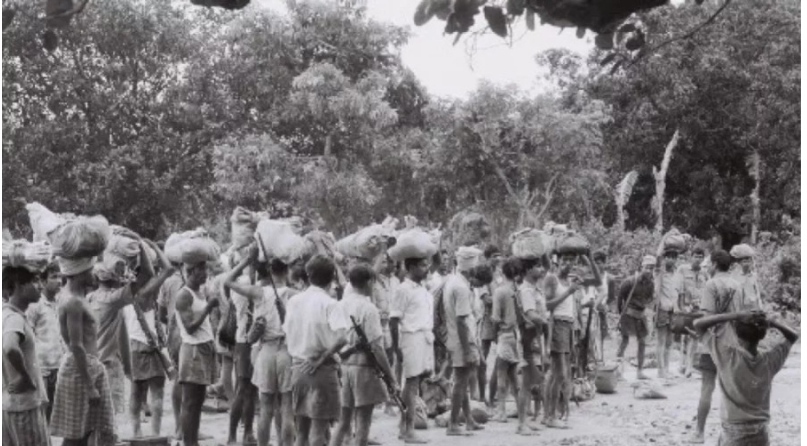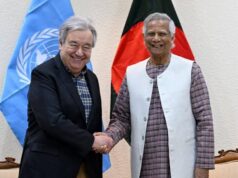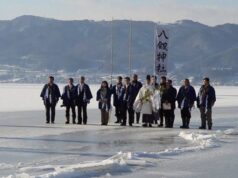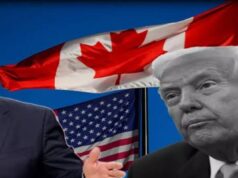1971 Liberation War: Sacrifices of 3 million martyrs recorded at ICJ
By Sheikh Shahriar Zaman

Bangladesh made a statement on the Palestine issue at the International Court of Justice (ICJ) in The Hague, Netherlands on February 20. Although the statement of the Ambassador of Bangladesh in the Netherlands, Riaz Hamidullah, was mainly about the Palestine issue—where hundreds of people including children are being killed by Israeli aggression – he mentioned the loss of 3 million people in the genocide in Bangladesh in 1971 in the same statement. According to experts, mention of the most brutal massacre in the history of Bangladesh in the case on Palestine can play a role in gaining international recognition for the genocide committed during the Liberation War.
Professor Mizanur Rahman, former chairman of the National Human Rights Commission, said: “Our statement has already been recorded in the court.”
While delivering a speech on the Palestine issue, he said that the issue of genocide in Bangladesh in 1971 had been presented beautifully. “The statement made by the ambassador on Palestine in the ICJ has the context of genocide in Bangladesh and it has been accepted and recorded,” he said.
Manzoor Hasan, Executive Director, Brac University’s Centre for Peace and Justice, said: “Through the mention of this at the ICJ, many people in the world got to know of it for the first time or those who knew of it before also heard it again and it all has an importance.”
M Sanjeev Hossain, Director of the same department, said: “In any other writing in the future, we can say that we mentioned genocide in one of our submissions to the ICJ.”
Genocide researcher Sanjeev Hossain said: “I don’t know if anyone has spoken about the sacrifice of 3 million lives before the ICJ or at the International Criminal Court.
Asked whether Pakistan knew about Bangladesh’s mention of the matter at the ICJ, Ambassador Riaz Hamidullah said: “When I was reading the statement, the Pakistani envoy was present in the court.”
At the beginning of his 21-minute speech on February 20, Ambassador Hamidullah referred to the sacrifice of 3 million lives in Bangladesh in 1971 and compared it with the Palestine issue.
Significance of the mention
Professor Mizanur Rahman said: “It has been recorded and no one has denied it. What is needed now is to try to achieve international recognition.”
Bangladesh is trying to get international recognition of the genocide and the mention of it at the ICJ can definitely play a role in this regard, Mizanur Rahman said. It can be submitted as background material or evidence.
“I can say that we made this statement at the International Court of Justice and no one objected to it. What is needed now is to try to say that the Pakistani forces carried out genocide against the people of Bangladesh”, he said.
When asked whether the statement made by Bangladesh in the court will help in the future, BRAC’s Manzoor Hasan said: “Of course. Now it has been recorded in court. The number mentioned here is what we have said before and it has been accepted by others, including historians.”
“Wherever we mention this, it has a value,” he said.
Research Director Dr M Sanjeev Hossain said: “There is no doubt that heinous acts defined as genocide took place in 1971.”
However, he said, anyone can say that there has been a genocide. But it has to be proved legally and it takes a lot of effort.
In this regard he said: “If Bangladesh wants to press for recognition of the 1971 genocide, the government will have to work hard. There has been much talk about 3 million people dying in Bangladesh. But no book of an international standard has been written on the subject. Besides, we have not written about this in any law journal of an international standard. If these are done, the whole process of obtaining recognition will be easy.”
Respect for international law
Professor Mizanur Rahman thinks that respect for international law has been clearly highlighted through the reference given by Ambassador Hamidullah to Bangabandhu’s speech and the constitution of Bangladesh.
He said: “In our statement, the ambassador made another very good reference. At the conference of the Non-Aligned Movement in Algiers in 1973, Bangabandhu said that the world is divided into two parts and we are on the side of the exploited. This is where Article 25 of the constitution comes from.”
“The basic premise of our foreign policy is ‘friendship to all, malice towards none’. But still, we side with the exploited. This shows our respect for international law,” he said.
He further said: “Our respect for and loyalty to international law has been enshrined in our constitution. On the other hand, we used that constitution as a reference in what we said in the ICJ about Palestine.”




